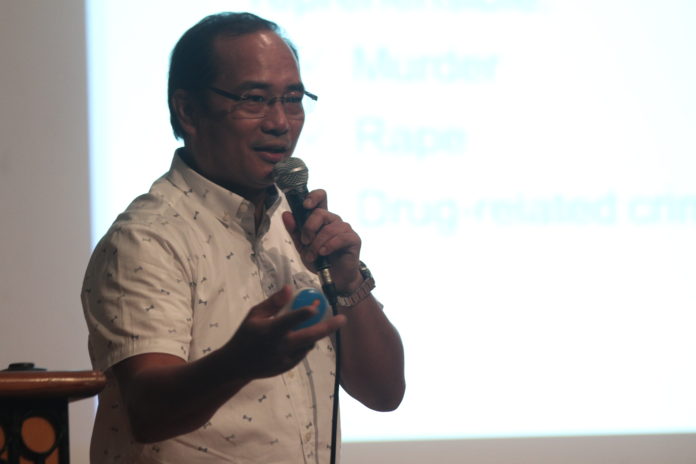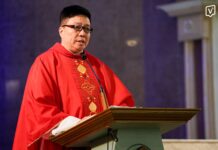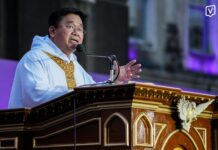THOMASIAN scholars stressed the need to rediscover the relationship between faith and reason to combat secularization and skepticism during the Fides et Ratio Symposium last Feb. 27 to 28 at the Thomas Aquinas Research Center Auditorium.
Professor Emeritus Alfredo Co said the dialogue of faith and reason must lead people to help each other regardless of race, culture and religion.
“The meaningful nurturing of life consists of individual and social commitment for the welfare of humanity so that humanity can live in harmony, unity and if possible, in perpetuity,” Co said in his talk titled “A Preliminary Reflection on the Place of Fides et Ratio in the Evangelization of the East in the 21st Century.”
Co said the Church urges its followers to engage in dialogue with other cultures to preserve the Christian values already present in their traditions with prudence and love.
“The Church admits that there is a lot to learn from other cultures and philosophies because present within other religions are seeds of salvation,” he added.
Jove Jim Aguas, a philosophy professor, said the separation of faith from reason has reduced people to objects of utility and has led to the rise of skepticism on the fundamental truths about man’s existence.
“Separated from the truth that transcends them, individuals are at the mercy of caprice and their status as a human person ends up being judged by pragmatic criteria based essentially upon experimental data,” he said.
Aguas said relativism has led people to be “more willing to accept partial truths instead of asking questions that pertain to human, personal and social existence.”
“The search for ultimate truth is so deeply rooted in us that it is unthinkable that it should be useless. At any rate, ignoring it would cast our existence into jeopardy,” he said in his talk titled “Christianity as the Locus of the Complementarity of Faith and Reason.”
Allan Basas, faculty secretary of the Institute of Religion, said philosophy and theology must work together against oppressive powers.
Citing philosopher Theodor Adorno, he warned about the reification of society wherein people are treated as “expendables” by unjust social structures.
“Whoever chooses philosophy as a profession today must first reject the illusion that earlier philosophical enterprises began with: that the power of thought is sufficient to grasp the totality of the real,” Basas said.
Philosophy as a tool for evangelization
Fr. Jose Antonio Aureada, O.P., member of the Commission on Higher Education’s Technical Committee for Catholic Religious Studies, said philosophy must aid theology in making faith more understandable.
“The Church considers philosophy as an indispensable help for a deeper understanding of faith and for communicating the truth of the Gospel to those who do not yet know,” he said.
Following Aquinas, Aureada said people who do not share the Christian belief can still reach the idea of God through reason.
“Thomas started with human reason and philosophy… [T]heology learns from philosophy because ultimately, theology is a human task, it remains to be a human intellectual endeavor,” he added.
The Fides et Ratio Symposium, organized by the Ecclesiastical Faculties, was part of the 5th Leonardo Legaspi, O.P. lecture series on religious studies and ethics.
The conference aimed for “critical and discerning dialogue” in response to Pope St. John Paul II’s encyclical “Fides et Ratio” by reviewing Catholic theology in the contemporary context.














